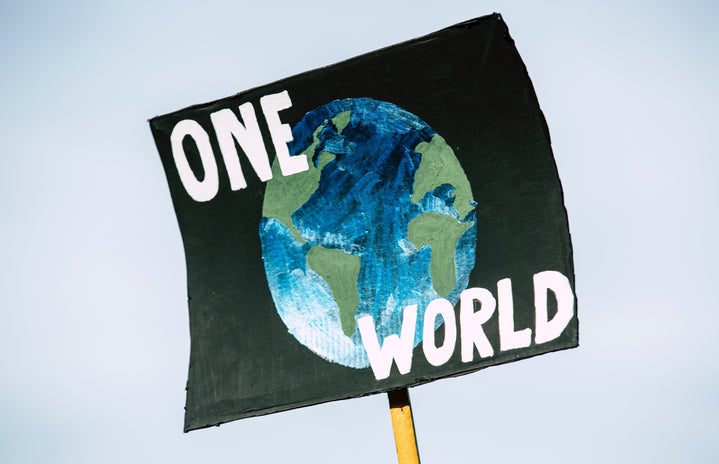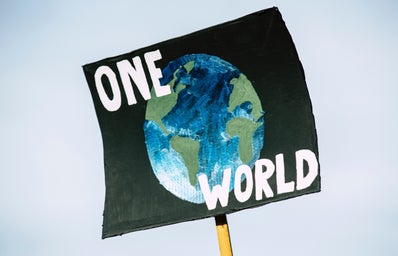The 28th edition of the COP, acronym for Conference of the Parties, will take place in less than a month, November 30. The event is organized by the United Nations (UN) annually and brings together representatives of the UNFCCC, the United Nations Framework Convention on Climate Change, that aims to review the positions and action of each country, review the emissions inventory and find new solutions to combat global warming. In 2023, COP will be headquartered by the United Arab Emirates at Expo City Dubai.
The COP28 will last until December 12. Among the main topics to be discussed are the transition to renewable energy and the decarbonisation of the industry.
Who created the COP?
In 1972, the Stockholm Convention was held, an event in which there was a mass awareness of the climate issue in the world. It is considered the great driver for the creation of the COP.
After that, Rio-92 took place, an important conference that gave Brazil a certain role of protagonism in relation to climate discussions. It was during that event that the UNFCCC was established and a treaty was signed between the countries to hold the first Conference of the Parties.
In 1995, the first COP took place in Berlin, Germany.
What is the importance of the COP?
The climate situation of planet Earth has been worsening. In 2023, records were broken in relation to rising temperatures, droughts and unexpected storms.
For more than twenty years, the COP has been responsible for bringing nations together and measuring progress and returns on climate change. It is there that agreements are signed to mitigate and solve the effects of global warming.
Some notable milestones occurred during the COPs, such as the Paris Agreement, responsible for global mobilization to limit Earth’s temperature by 1.5°C above pre-industrial levels defined in COP21.
Highlights of the previous COPs
COP1 – 1995 – Berlin, Germany
The process of negotiating targets and deadlines for the reduction of greenhouse gas emissions for developed countries was initiated.
COP2 – 1996 – Geneva, Switzerland
Through the Geneva Declaration it was agreed to create legal obligations of reduction targets.
COP3 – 1997 – Kyoto, Japan
Adoption of the Kyoto protocol, there was the establishment of goals to reduce greenhouse effect gases for the main emitting countries.
COP4 – 1998 – Buenos Aires, Argentina
The Buenos Aires Action Plan is drawn up, aiming at a work plan to implement and ratify the Kyoto Protocol.
COP6 – 2000 – The Hague, Netherlands
The agreements were suspended due to the lack of agreement between the European Union and the United States regarding sinks and land use change activities.
COP7 – 2001 – Marrakech, Morocco
The COP6 negotiations are resumed, however, with the departure of the United States from the negotiation process, on the grounds that the costs would be very high for the American economy, as well as the contestation on the lack of goals for the countries of the south.
COP10 – 2004 – Buenos Aires, Argentina
Approval of the rules for the implementation of the Kyoto Protocol and discussions on the regulation of small-scale reforestation and afforestation projects.
COP12 – 2006 – Nairobi, Kenya
189 nations commit to revising the Kyoto Protocol and rules are stipulated for funding adaptation projects in poor countries. Brazil proposes the creation of a mechanism that effectively promotes the reduction of greenhouse gas emissions in developing countries from deforestation.
COP13 – 2007 – Bali, Indonesia
The issue of forests was included in the text of the final decision of the Conference to be considered in the next climate treaty, with a deadline until 2009 to define the targets for reducing emissions from deforestation in developing countries post-2012.
COP15 – 2009 – Copenhagen, Denmark
There was an attempt to seek consensus around the Copenhagen Agreement, which was not approved by all 192 member countries of the Convention. Despite this, the Copenhagen Agreement represented a major step forward in recognizing the promotion of emissions reductions resulting from deforestation and forest degradation as a crucial measure to mitigate the effects of climate change.
COP16 – 2010 – Cancún, Mexico
At this COP, Brazil launched its National Communication on Greenhouse Gas Emissions and announced the regulation of its National Policy on Climate Change. This act made Brazil the first nation to assume and impose limits on emissions reductions. There was also the creation of the Green Climate Fund.
COP19 – 2013 – Warsaw, Poland
It was decided the compensation of losses and damages, climate financing and payment for reduced emission from the effort to combat deforestation and forest degradation.
COP21 – 2015 – Paris, France
A new agreement was adopted with the aim of strengthening the global response to the threat of climate change and strengthening countries’ capacity to deal with the impacts arising from these changes.
COP22 – 2016 – Marrakeck, Morocco
It was made with the aim of regulating the details of the Paris Agreement, which focused on containing greenhouse gas emissions, and thus limit the increase in average global temperature to well below 2 degrees Celsius.
COP23 – 2017 – Bonn, Germany
The United States was removed from the Paris Agreement, Brazil received the “Fossil of the Day” award and the United Kingdom and Canada announced the “Powering Past Coal Alliance” on the reduction in the use of coal.
COP26 – 2021 – Glasgow, Scotland
It marked the five years since the signing of the Paris Agreement. At that COP, 103 countries signed the Global Methane Pact, committing to collectively reduce methane emissions by 30% by 2030 (based on 2020 levels).
————-
The article above was edited by Giulia Howard.
Liked this type of content? Check out Her Campus Casper Libero for more!


